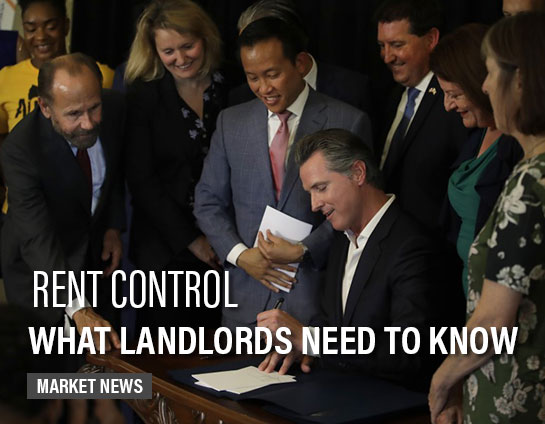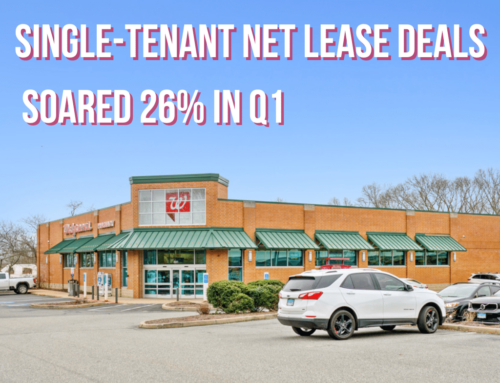The new law caps rent increases at 7 to 8 percent a year, and has new renter protections
Rent control is coming to San Diego County in 2020, and there is a lot for tenants and landlords to know.
Gov. Gavin Newsom signed legislation in early October that will cap rent increases throughout the state from 7 to 8 percent a year. It’s uncharted territory for California to have a statewide effort to rein in rents and especially in San Diego County, which has never had any form of rent control.
It’s largely up to landlords and renters to know the rules because there won’t be any rent police coming door to door — leaving courts to handle coming conflicts.
The law will be a factor in the real estate industry for many years. The rent cap will expire in 10 years, but critics have argued lawmakers are likely to extend it.
Here are the biggest things to know.
Rent is now capped
Landlords cannot raise rent more than 5 percent plus inflation as of Jan. 1. However, the legislation is backdated to March 15, so a landlord cannot raise rent excessively in the next few months to try and beat the law.
The inflation rate used by the new law was 2.2 percent as of March, so a landlord could not raise rent more than 7.2 percent in a year. For example, if a renter was paying $1,200 a month in March, the most a landlord could raise rent — based on the new law — would be around $86 to $1,286 a month.
Figuring out what the inflation rate is can take some work for landlords, and renters who want to make sure they are not being overcharged. The inflation rate is based on the California Consumer Price Index published by the state’s Department of Industrial Relations. After going to the website, https://www.dir.ca.gov/oprl/CAPriceIndex.htm, users need to click on the Consumer Price Index for all areas, find the San Diego metropolitan area and then calculate the percentage change from March to March.
The California Apartment Association has created an inflation rate widget to help landlords quickly figure out the rate in their area, but it is only available to members.
No matter what, rents are capped at a 10 percent yearly increase. The way it works is rent cannot go over 5 percent plus inflation, so if there is a year with 6 percent inflation, it prevents a landlord from increasing rents up to 11 percent.
If a landlord raises the rent more than allowed, a tenant must take them to court but, ideally, that could be avoided before with a conversation or letter. Additional resources and ideas may be available before going to court. The Alliance of Californians for Community Empowerment, or ACEE, has set up a tenant hotline, 1-888-428-7615, to advise renters.
It should be noted that the law applies to people with leases and those in month-to-month situations.
Once a tenant leaves a rental unit, the landlord can raise the rent as much as they want for that apartment.
There are a few exemptions
The new law only applies to rentals that are more than 15 years old.
If a rental property is exempt from the new law, a landlord is required to provide a written notice to the renter why they are exempt.
If a renter wants to double-check the exact age of their rental unit, they can go to any of the five locations of the San Diego County Assessor’s Office to request records. The database is not online yet, but private websites — such as, Zillow or Redfin — often will list the age of the property.
The biggest exemption under the law are single-family homes and condos. However, even that is not as straight forward as it might seem.
If a single-family home or condo is owned by a big corporation, they are not exempt. The law targets real estate investment trusts and limited liability companies that own many single-family homes. Finding out the owner of a property can be difficult even with access to deeds and expensive online databases, because names are often obscured by LLCs and other means.
Alexander Harden, a policy advocate at the Western Center on Law & Poverty that help craft the new law, said it would be unlikely a corporation would try to skirt the law because it could open them up to a class-action lawsuit.
“We wanted to capture these big corporate actors that are increasingly investing in small properties,” he said. “That’s why there is an exception to the exception for those folks.”
Other exemptions: If you live in a duplex, and the owner is living in the other unit, that apartment is not covered under rent control. Also, mobile homes are exempt. (Granny flats are exempt if they are less than 15 years old.)
The new law also comes with some new tenant protections. After a renter has lived in a unit for one year, they can only be evicted with “just cause.”
Some of these causes are: Not paying rent, violation of part of the lease, doing significant damage to the property, or using the building for illegal purposes.
The landlord is able to kick out the renter if they want to move into the property, or no longer want to use it as a rental and sell it. In both cases, the landlord must give the tenant one month’s rent as relocation assistance.
Writers of the rent control bill, called Assembly Bill 1482, said the tenant protections were necessary because a landlord may try to evict someone for no reason so they can raise the rent rate of their unit.
Heidi Palutke, a lawyer with the California Apartment Association, said the organization is updating all of its forms and creating new ones for landlords to help make sure everyone is in compliance with the new rules.
“It’s really a sea change for how landlords do business,” she said.
One interesting tidbit in the law is that if a landlord raised the rate on a renter by more than 7.2 percent since March, they will need to lower that renter’s rate on Jan. 1. However, Palutke said that renter does not get paid back for the extra money above the cap before 2020.
She said the “just cause” protections might make it difficult, for example, to get rid of a problem tenant dealing drugs. Before the law, a landlord could just serve an eviction notice for no reason. Now, a landlord will need to be able to prove illegal activity is taking place, which may be difficult if other renters do not want to come forward.
However, she did say the one year before “just cause” protections kick in may prevent some bad situations because it gives the landlord and tenant time to get to know each other.
Will rent automatically go up?
It might make sense for a landlord to raise rent, under the 7 to 8 percent cap, because they will be limited for at least the next 10 years how much rent can be increased. (The law is set to expire in Jan.1, 2030, unless lawmakers decide to extend it.)
However, it is pretty rare for the average rent in San Diego County to go up more than 7 percent. Asking rents are up 2.6 percent in a year as of the third quarter, said real estate tracker CoStar, to an average $1,848 a month. Although, rents were up 7.5 percent annually in the third quarter of 2015.
So, it would probably make sense for a landlord to jack up the rent at least 7 percent every year, right? Not necessarily, said C2 Financial Corp. real estate analyst Mark Goldman.
“The statutory limit might be 7.2 percent, but the market might only be appreciating at 2 or 3 percent per year” he said. “A landlord isn’t going to put in the max (of 7.2 percent) unless they want to expose themselves to empty units.”
Some areas of San Diego County have seen flat, or minor decreases, in rent in recent months, making it unlikely a tenant would stay in an apartment if a landlord raises rates substantially. In the competitive East Village rental market, home to several new buildings, the average asking rent was down 1.2 percent to $2,503 in the third quarter compared to the previous quarter, said real estate tracker CoStar.
See Original Article:
CONTACT INFORMATION
For more information or to get a complimentary evaluation, please contact:
Ryan Barr
Principal
760.448.2446
rbarr@lee-associates.com
Ryan Bennett
Principal
760.448.2449
rbennett@lee-associates.com





